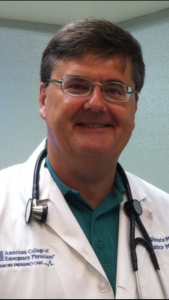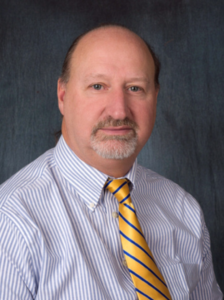Why Primary Care Trained Physicians Working in Rural EDs Should Become Board Certified in Emergency Medicine
Rural areas have seen a shortage of qualified emergency medicine physicians for many years now. To fill the workplace gap, rural emergency departments have long relied on the services of primary care trained doctors. Compared with urban areas, medical specialization is less common in rural communities. Because primary care doctors are backed by years of extensive training, they can provide a wide spectrum of medical care in rural ERs, including most of the emergency care. In fact, for many primary care physicians, this greater clinical responsibility has led to professional growth.
The shortage of board-certified emergency physicians has been a long-standing issue, but the impact is particularly acute in rural areas. Research on emergency department staffing reveals that close to two-thirds of board-certified emergency physicians are concentrated in urban settings, leaving many rural hospitals struggling to fill critical roles.
In an article published by Health Leaders Media, Dr. M. Kennedy Hall, an emergency physician at Harborview Medical Center in Seattle and the study’s lead author, highlighted the challenges rural communities face.
“Rural area patients are now considered a disparity population, and rural areas are faced with an ongoing problem of insufficient numbers of emergency medicine-specialty physicians to staff their emergency departments,” Hall said.
The American Board of Physician Specialties® (ABPS), through the Board of Certification in Emergency Medicine (BCEM), offers primary care physicians with substantial experience working in emergency departments the opportunity to pursue board certification in emergency medicine.
Three primary care physicians who have worked in rural emergency departments can testify to the importance and benefits of becoming certified in emergency medicine through BCEM. Here are their stories:
 Harry L. Wingate III, MD, FACEP: In exchange for the state paying my medical school tuition, I agreed to practice primary care medicine in an underserved rural area. So, in 1990 after completing my residency in family medicine, I moved to Eatonton, GA. While completing my primary care practice obligation, I also worked for seven years in rural EDs, accumulating over 10,000 hours of experience. Seeing the tremendous need for rural EM doctors, I decided, after successfully passing the rigorous oral and written BCEM exams in 1997, to transition to the full-time practice of rural EM. It is, by necessity, an engaging practice setting to say the least. As someone who is competitive and easily bored, I’ve found it perfect for my personality. What I like most about practicing medicine in a rural area is the appreciation and respect I’ve received from the community. As a rural physician, you are known and esteemed as a valuable community member.
Harry L. Wingate III, MD, FACEP: In exchange for the state paying my medical school tuition, I agreed to practice primary care medicine in an underserved rural area. So, in 1990 after completing my residency in family medicine, I moved to Eatonton, GA. While completing my primary care practice obligation, I also worked for seven years in rural EDs, accumulating over 10,000 hours of experience. Seeing the tremendous need for rural EM doctors, I decided, after successfully passing the rigorous oral and written BCEM exams in 1997, to transition to the full-time practice of rural EM. It is, by necessity, an engaging practice setting to say the least. As someone who is competitive and easily bored, I’ve found it perfect for my personality. What I like most about practicing medicine in a rural area is the appreciation and respect I’ve received from the community. As a rural physician, you are known and esteemed as a valuable community member.
 Kevin Clarke, MD: After completing training in internal medicine at West Virginia University in 1989, I began working full time in EM. Given that it matched my skills and interest, EM was a better fit for me. I realized as time passed that hospitals were acquiring more ED physicians who were EM certified, but no EM residency program existed in West Virginia at that time. I also found that to continue long term in EM one needed board certification in the specialty. I went on to earn certification with the BCEM in 1997. Being BCEM certified, I can continue in EM for the rest of my career. EM certification has allowed me to participate in academic meetings and has given me a peer group that encourages self-continuing education and training in EM. I am also recognized by my peers as an equally trained colleague. Being EM board certified with primary care training, in my opinion, is optimal for rural emergency care. I can communicate with my inpatient specialty colleagues and hospitalists better because of my training exposure to inpatient care.
Kevin Clarke, MD: After completing training in internal medicine at West Virginia University in 1989, I began working full time in EM. Given that it matched my skills and interest, EM was a better fit for me. I realized as time passed that hospitals were acquiring more ED physicians who were EM certified, but no EM residency program existed in West Virginia at that time. I also found that to continue long term in EM one needed board certification in the specialty. I went on to earn certification with the BCEM in 1997. Being BCEM certified, I can continue in EM for the rest of my career. EM certification has allowed me to participate in academic meetings and has given me a peer group that encourages self-continuing education and training in EM. I am also recognized by my peers as an equally trained colleague. Being EM board certified with primary care training, in my opinion, is optimal for rural emergency care. I can communicate with my inpatient specialty colleagues and hospitalists better because of my training exposure to inpatient care.
 Alex Beuning, MD: I went into family medicine because I wanted to practice rural medicine. For my mentors, that meant all aspects of medicine in the small town they served, including covering the emergency department. I learned that while I enjoyed all aspects of medicine, I loved rural emergency medicine the most. I eventually became the ED medical director and began investing in my EM practice, eventually moving to a full-time EM practice after six years of full-spectrum care. Having earned BCEM certification through my proficiency in EM, I can connect with colleagues working in similar environments as me and can learn and grow from our interactions. I strongly encourage primary care trained physicians to complete an EM fellowship. If that is not possible, then I would encourage primary care doctors to commit to their development as EM physicians through the rigorous process of board certification with the BCEM.
Alex Beuning, MD: I went into family medicine because I wanted to practice rural medicine. For my mentors, that meant all aspects of medicine in the small town they served, including covering the emergency department. I learned that while I enjoyed all aspects of medicine, I loved rural emergency medicine the most. I eventually became the ED medical director and began investing in my EM practice, eventually moving to a full-time EM practice after six years of full-spectrum care. Having earned BCEM certification through my proficiency in EM, I can connect with colleagues working in similar environments as me and can learn and grow from our interactions. I strongly encourage primary care trained physicians to complete an EM fellowship. If that is not possible, then I would encourage primary care doctors to commit to their development as EM physicians through the rigorous process of board certification with the BCEM.
Learn More About BCEM Certification
If you’re interested in earning board certification through the BCEM, the first step is meeting the general eligibility requirements set by the American Board of Physician Specialties (ABPS). These include graduating from a recognized allopathic or osteopathic medical school in the U.S. or Canada, and holding a valid, unrestricted license to practice medicine in the United States, its territories, or Canada.
The BCEM also has specific eligibility criteria tailored to physicians with emergency medicine experience. If you’re a family medicine physician looking to advance your career and gain well-earned recognition for your expertise in emergency care, we encourage you to contact the ABPS. We’ll provide detailed information about the BCEM eligibility process and the many professional benefits that come with this respected national certification.










